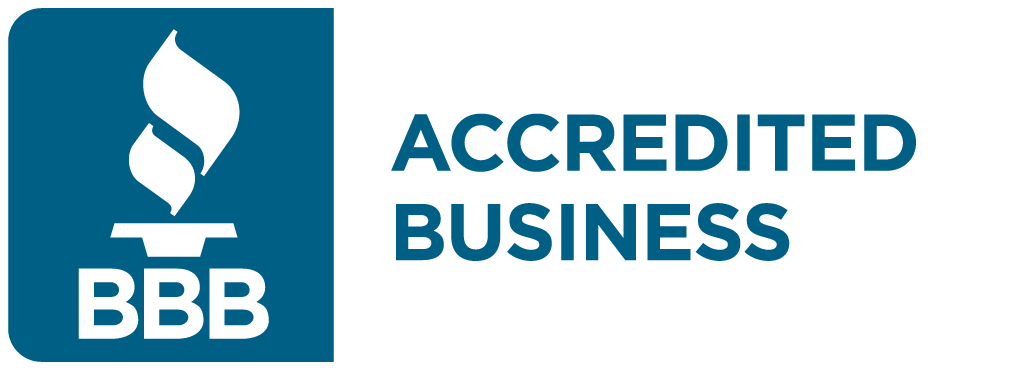How to Terminate an Employee the Correct Way: A Step-by-Step Playbook for Small and Medium-Sized Businesses
Terminating someone is one of the hardest tasks a leader faces. Do it poorly and you risk legal exposure, damage to morale, and a hit to your employer brand. Do it well and you protect your team, treat the departing person with dignity, and reduce organizational disruption. Below are step-by-step best practices drawn from HR and management authorities.
Before the Meeting, Plan Thoroughly (Do Not Wing It)
Document the Reason and Process
Collect performance reviews, progressive-discipline notes, attendance records, investigation findings, warnings, and any relevant emails.
Documentation reduces legal risk and helps you explain the decision succinctly.
Confirm Legal and Policy Considerations
Review employment agreements, contract terms, local/state employment laws, company policies, and any protected-class issues. Consult HR or
legal counsel if there's any risk of discrimination, retaliation, or whistleblower claims.
Decide Timing and Logistics in Advance
Best practice: hold the meeting early in the week and early in the day (e.g., first thing Monday or Tuesday morning) so the employee has access
to support resources and the remainder of the business day to gather personal items, rather than being sent home late on a Friday. For safety or
business-sensitive reasons, some organizations choose end-of-day; weigh pros/cons for your context.
Prepare the Severance and Transition Package
Decide pay through the last day, accrued PTO payout (if applicable), severance amounts, benefits continuation (COBRA or local equivalent),
return-of-property steps, and any non-compete/confidentiality reminders. Have written paperwork ready to share. Offering outplacement and career transition services as part of the package is a best practice that reduces blowback and supports a smoother transition.
Arrange Participants and a Security Plan
Typical attendees: the employee’s direct manager (or HR leader) and an HR representative. For smaller shops without HR, have a senior leader
plus a neutral witness present. Decide whether to have security or IT on standby (if there are concerns about safety or data access). Plan how
you’ll collect company property and revoke system access promptly.
During the Meeting, Keep It Short, Clear, and Humane
Open With a Clear, Direct Statement
Start with a short, unambiguous sentence: “I have some difficult news. Today is your last day.” Say the reason succinctly (e.g., “Because of
ongoing performance issues we’ve discussed,” or “due to the role being eliminated”), then stop. HBR and SHRM recommend brevity to avoid
emotional escalation and legal risk.
Stick to Facts and Don’t Debate
Do not re-argue past performance or get pulled into a long defense. Offer the documentation and the decisions that led here only if necessary. Otherwise, focus on next steps (pay, benefits, outplacement).
Show Empathy, But Be Professional
Acknowledge the impact: “I know this is hard.” Avoid overpromising (e.g., don’t say you’ll help with networking unless you will). Behavioral empathy
preserves dignity while maintaining clarity.
Explain the Logistical Next Steps Clearly
Cover immediate practical matters: final pay and severance, benefits continuation, when and how they’ll retrieve personal items, how to return
company property, who to contact about payroll/benefits, and what will be communicated to colleagues. Provide a one-page summary and the
contact info for HR or the outplacement provider.
Offer Resources and Outplacement Services
Explain any career transition support you’re providing (resume help, coaching, job search platforms). High-quality outplacement reduces stress
for the departing employee and helps protect your reputation.
End Succinctly and Follow with Written Materials
Conclude the meeting quickly once the core items are covered, then give the employee written materials (severance agreement, benefits
instructions, outplacement enrollment info) and contact details. Keep the meeting to the point to avoid saying something that could be
misinterpreted later.
After the Meeting: Protect the Team and the Company
Coordinate Communications with Staff
Have a short, neutral message ready for the team that respects privacy (no details) and explains next steps for the work responsibilities. With regards to timing, communicate to the team soon after the termination so rumors don’t spread. Keep comments factual and brief.
Secure Company Assets and Accounts
Immediately revoke system access or schedule revocation to balance dignity (some companies wait a few hours) with security. Collect keys,
access cards, laptops, phones, and change shared passwords if needed.
Support the Remaining Team
Meet with the team to reassign work, acknowledge the change, and support morale. Watch for increased workload or stress and redistribute
tasks as needed. Good offboarding of one person should include onboarding for the rest of the team to maintain continuity.
Follow up on the Separation Paperwork and Benefits
Ensure the employee receives everything promised in writing, including severance payments, benefit continuation details, and instructions to
enroll in outplacement services. Confirm the outplacement provider has contacted the person and initiated services.
What to Have Ready (a Short Checklist to Bring to the Meeting)
- Decision documentation (written reasons and evidence).
- Termination letter and severance agreement (two copies: one for the employee, one for the file).
- Final paycheck and payroll instructions (or timeline).
- Benefits/COBRA information and contacts.
- Outplacement support contact information for enrollment
- Checklist for return of company property and IT deprovisioning plan.
- A neutral witness (HR or senior leader) and a safe, private meeting room.
Things You Must NOT Do
Don’t Ambush or Surprise Without Prior Process
If it’s for cause, progressive discipline and documentation are expected. Sudden termination with no prior warning increases legal risk.
Don’t Get Drawn Into a Long Debate
Avoid providing new reasons or excuses in the meeting. Keep it concise.
Don’t Apologize for the Decision in a Way That Undermines It
Empathy is good; undermining language (e.g., “I wish we could change this, but…”) can create ambiguity about the finality.
Don’t Disclose Confidential or Unrelated Information
Maintain privacy and limit communications to necessary facts.
Don’t Ignore Safety
If there’s any concern about a hostile reaction, have security or an escort procedure.
Why Bring in an Outplacement Firm (and When)
What Outplacement Provides
Career coaching, resume and LinkedIn help, interview skills, job leads, and emotional support during transition. These
services materially improve re-employment outcomes and help preserve goodwill.
Business Benefits
Reduces legal and reputational risk, maintains morale among remaining employees, and demonstrates you treated the departing
person fairly. This can lessen litigation incentives.
When to Engage Them
Contract with an outplacement provider during workforce reductions or before planned terminations for at-risk employees. If possible, have the outplacement enrollment materials and an enrollment contact available at the termination meeting so the departing employee can get
immediate help.
Sample Short Script for a Termination/Layoff Meeting (can use this as a template)
“Thanks for meeting. I have some difficult news to give. Today is your last day with us here at [Company]. This decision is final. We will pay you through [date], provide [X weeks] severance, continue benefits through [date], and offer you career transition support through [vendor]. I’ll give you the enrollment sheet now. HR will follow up with the paperwork and answer any questions about pay and benefits. You can gather your personal items today. [Name] will assist you. Do you have any immediate questions I can answer right now?”
Keep the meeting direct, empathetic, and procedural. Offer the written packet immediately after speaking.
Final Recommendations for a Termination (practical, actionable)
Plan Every Termination as if it Could Be Reviewed in Court
Documentation, neutral witnesses, and consistent application of policy are key.
Keep the Meeting Short and Human
Say what happened, why (briefly), and what comes next. Then, give written info and outplacement enrollment.
Use Outplacement Proactively
It’s good for the person leaving and your company’s brand and risk profile. Make enrollment immediate and easy.
Don't Delay When Action is Needed
Prolonging a bad situation hurts teams and productivity; follow a fair process, but act in a timely way.
Employee Outplacement Services Support All Involved
Outplacement services can be provided for anyone being let go from a company — a division manager, a C-suite office holder, or an entry-level employee. However, an executive outplacement will differ from others and must be treated as such. A boutique outplacement firm like Endeavor Agency will help create a personalized outplacement assistance plan for every employee to help them get back on their feet and move forward.
Contact Endeavor today to schedule a chat and discover if our outplacement agency can help you through a difficult but needed termination.
About Endeavor Agency
Endeavor Agency is the nation’s leading company helping individual executives, VPs, senior managers, professionals, and physicians find the jobs they truly want. Our additional resources, expertise, and career change specialists help our clients uncover more and better job opportunities than what they could access on their own.
Endeavor Agency helps rebrand clients to effectively communicate their value throughout the interview process and increase their odds dramatically of winning offers. Additionally, Endeavor Agency helps clients achieve better results in negotiating the terms of their employment agreements.
Endeavor Agency also provides executive coaching, outplacement services, and business consulting services. Endeavor can also help guide executives focused on the private equity and venture capital market segments.











